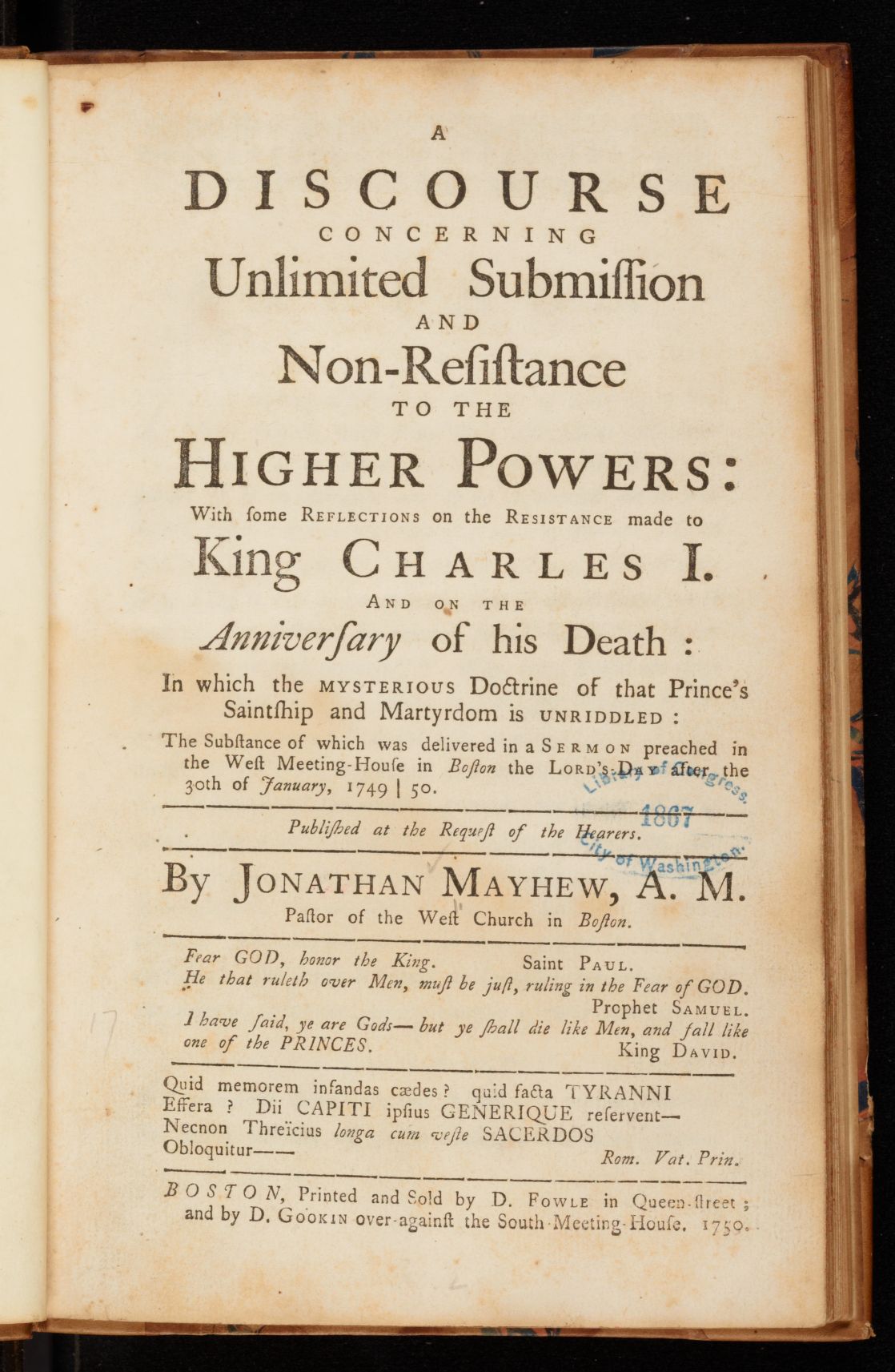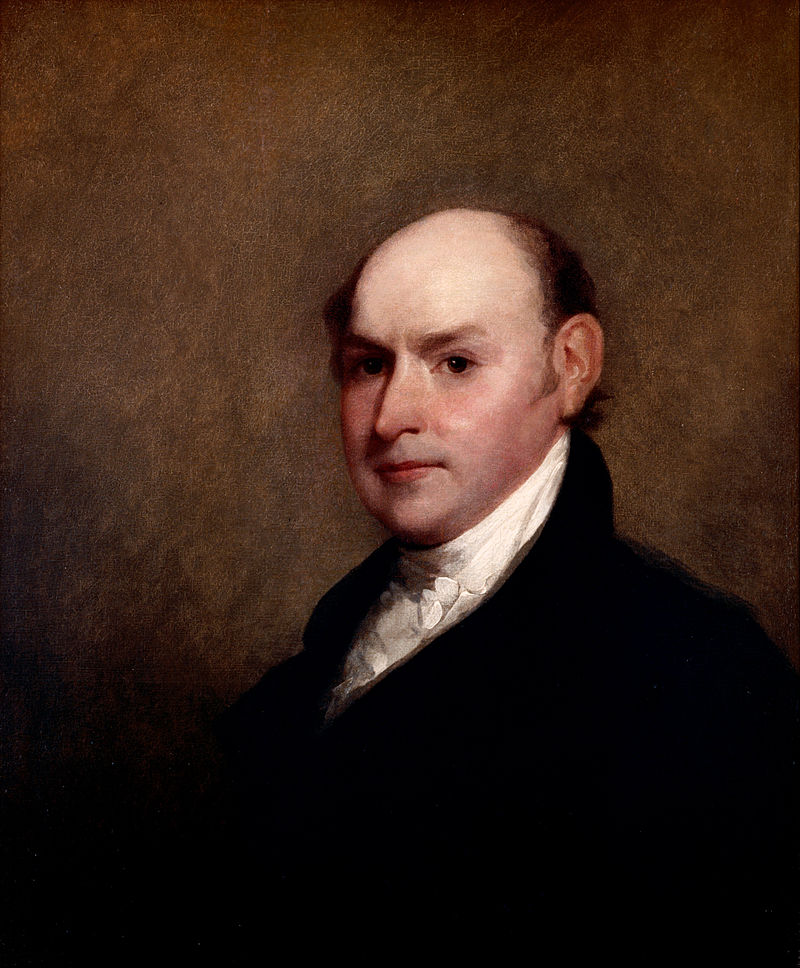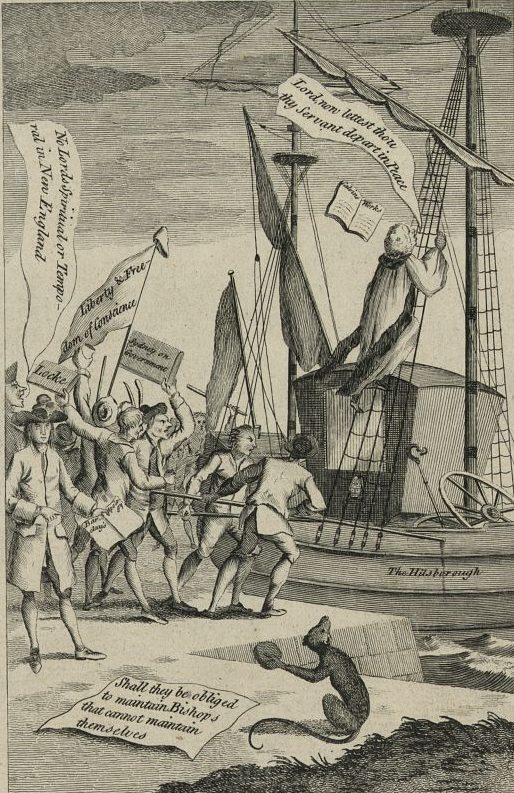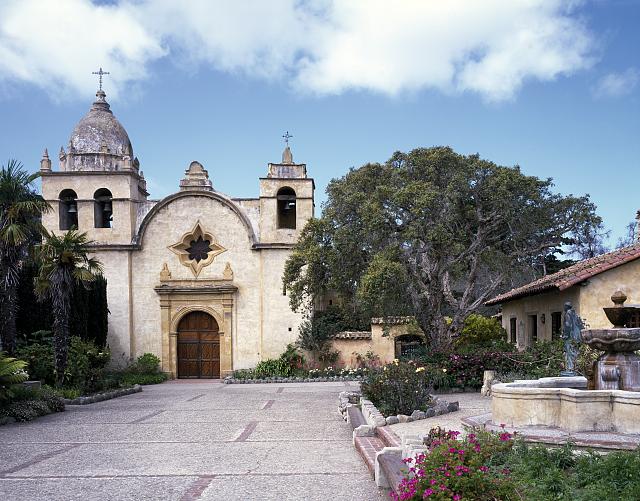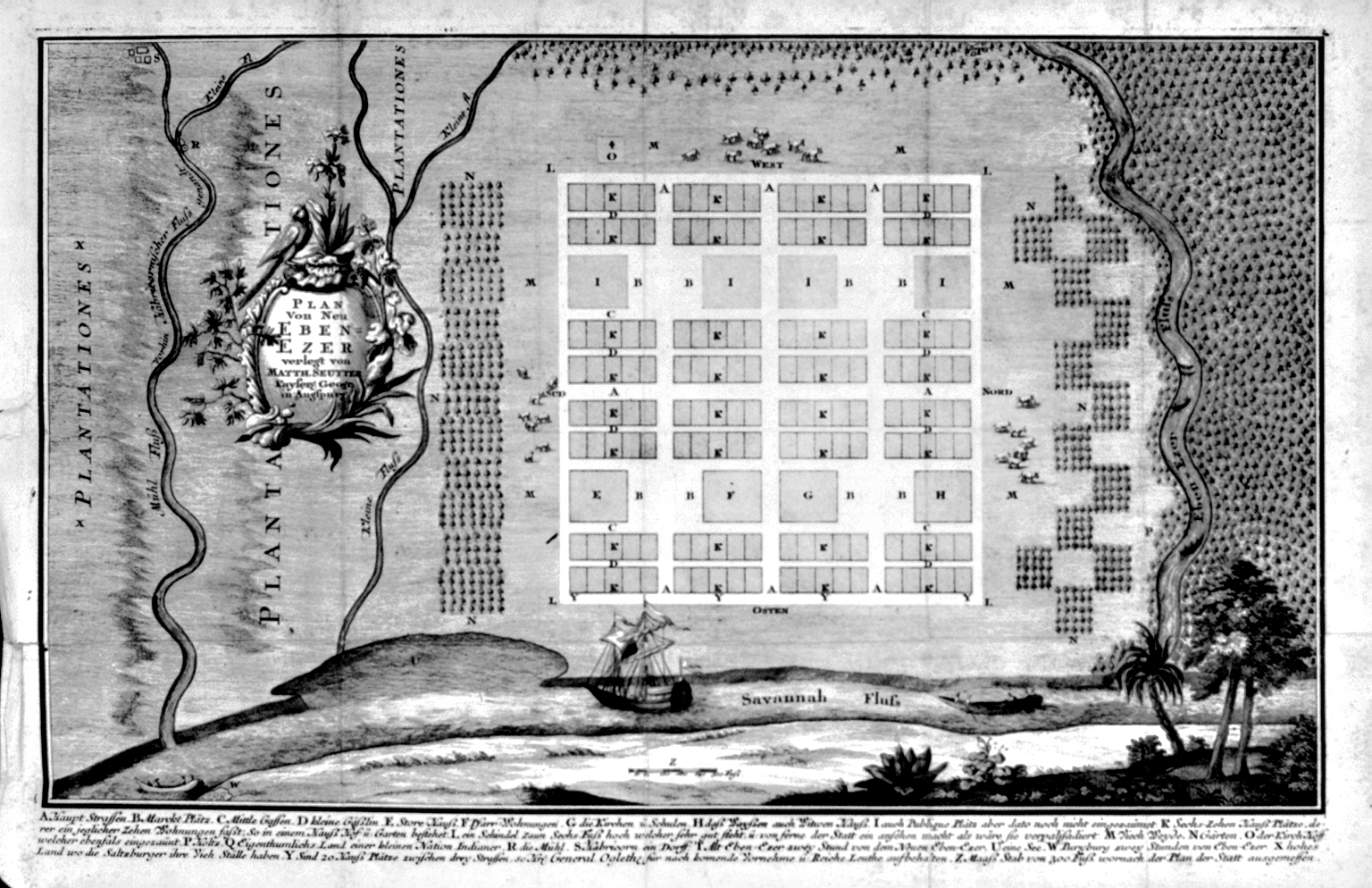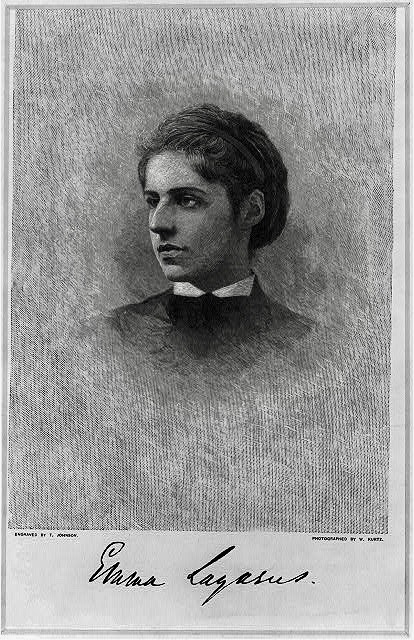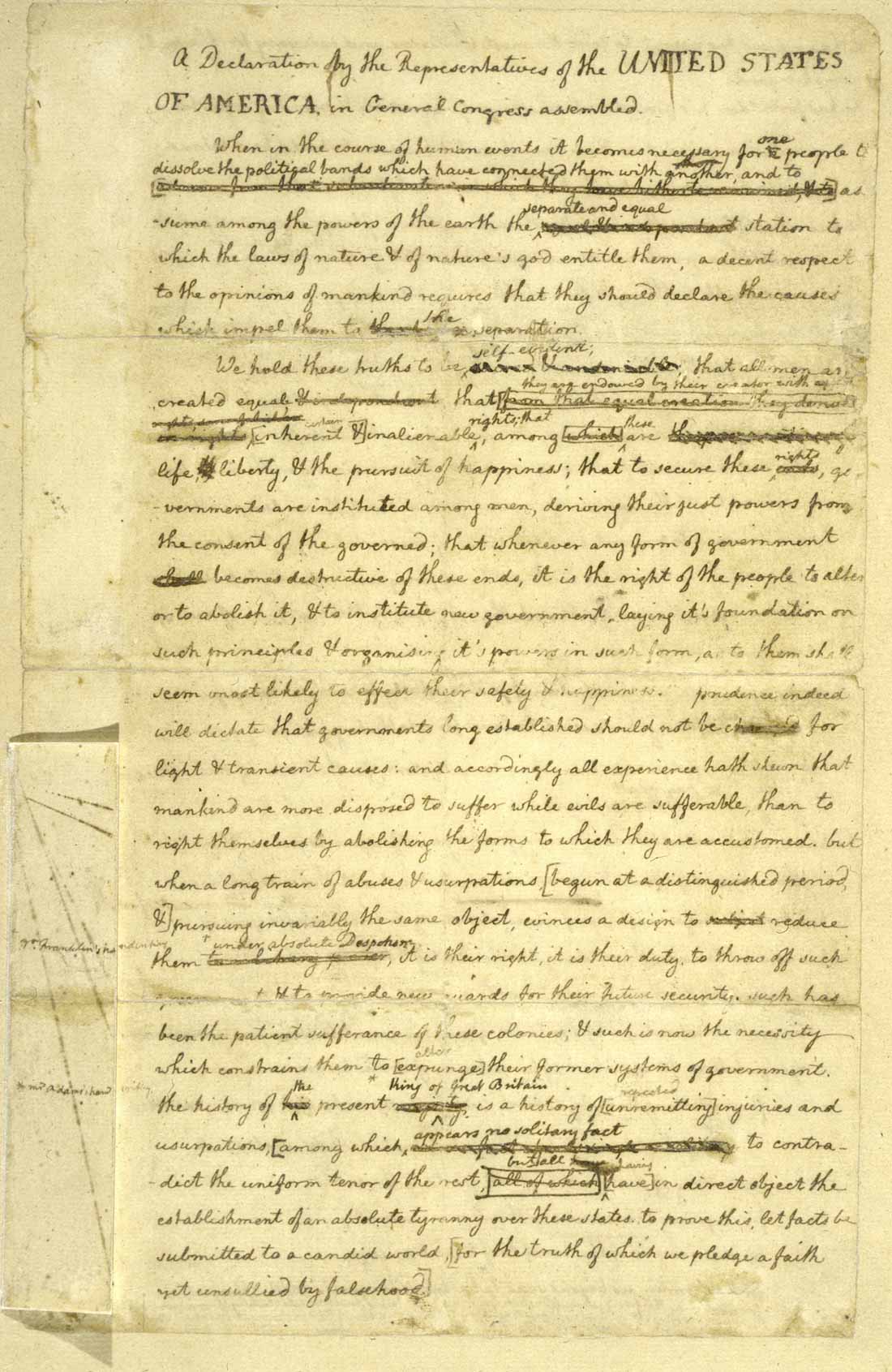Excerpts of Colonial Laws related to Religious Establishment and Toleration
Various
1610 - 1682
When they settled in North America, English colonists brought their religious beliefs with them. In most instances, this was accomplished not only as a matter of social or cultural transmission, but by acts of legislative authority.
One of the 25 Core Documents
Go to Study Questions
Introduction
Only Pennsylvania, Delaware, Rhode Island, and (possibly) New Jersey failed to establish a particular denomination at some point during the colonial period: in the other colonies, religious establishments were the norm, and generally seen as for the benefit of both church and state as institutions, as well as in accordance with the public good. The excerpts from the laws presented here have been selected for their ability to illustrate colonial attitudes about the relationship between religion and political life: note that all of them—even those which are more “tolerant” of religious variety—presume that religion is a necessary component of civil order.
Articles, Laws, and Orders, Divine, Politic, and Martial for the Colony in Virginia (c. 1610)
- First, since we owe our highest and supreme duty—our greatest, and all our allegiance— I would make this all one line, even if it is split in the original to Him, from whom all power and authority is derived, and flows as from the first, and only fountain; and [since], being especial soldiers impressed in this sacred cause, we must alone expect our success from Him—who is only the blesser of all good attempts, the King of Kings, the Commander of Commanders, and Lord of Hosts—I do strictly command and charge all Captains and Officers…to have a care that the Almighty God bee duly and daily served, and that they call upon their people to hear Sermons, as that also they diligently frequent Morning and Evening prayer themselves by their own exemplar and daily life, and duties herein, encouraging others thereunto, and that such, who shall often and willfully absent themselves, be duly punished according to the martial law in that case provided.
- That no man speak impiously or maliciously, against the holy and blessed Trinity, or any of the three persons, that is to say, against God the Father, God the Son, and God the holy Ghost, or against the known Articles of the Christian faith, upon pain of death.…
- No man shall speak any word, or do any act, which may tend to the derision, or despising of God’s holy word upon pain of death: Nor shall any man unworthily demean himself unto any Preacher, or Minister of the same, but generally hold them in all reverent regard, and dutiful entreaty, otherwise he the offender shall openly be whipt three times, and ask public forgiveness in the assembly of the congregation three several Sabbath Days.
- Every man and woman duly twice a day upon the first tolling of the Bell shall (upon the working days) repair unto the Church, to hear divine Service upon pain of losing his or her day’s allowance1 for the first omission; for the second to be whipt; and for the third to be condemned to the Galleys2 for six Months. Likewise no man or woman shall dare to violate or break the Sabbath by any gaming, public or private abroad, or at home, but duly sanctify and observe the same, both himself and his family, by preparing themselves at home with private prayer, that they may be the better fitted for the public, according to the commandments of God, and the orders of our Church, as also every man and woman shall repair in the morning to the divine service, and Sermons preached upon the Sabbath day, and in the afternoon to divine service, and Catechizing, upon pain for the first fault to lose their provision, and allowance for the whole week following, for the second to lose the said allowance, and also to be whipt, and for the third to suffer death.
- All Preachers or Ministers within this our Colony, or Colonies, shall in the Forts, where they are resident, after divine Service, duly preach every Sabbath day in the forenoon, and Catechize in the afternoon, and weekly say the divine service, twice every day, and preach every Wednesday; likewise every Minister where he is resident, within the same Fort, or Fortress, Townes or Towne, shall choose unto him, four of the most religious and better disposed as well to inform of the abuses and neglects of the people in their duties, and service to God, as also to the due reparation, and keeping of the Church handsome, and fitted with all reverent observances thereunto belonging: likewise every Minister shall keep a faithful and true Record, or Church Book of all Christenings, Marriages, and deaths of such our people, as shall happen within their Fort, or Fortresses, Townes or Towne at any time, upon the burthen of a neglectful conscience, and upon pain of losing their entertainment. 3
Maryland Toleration Act (September 21, 1649)
Forasmuch as in a well governed and Christian Commonwealth, matters concerning Religion and the honor of God ought in the first place to be taken into serious consideration and endeavored to be settled, be it therefore ordered and enacted by the Right Honorable Cecilius Lord Baron of Baltemore absolute Lord and Proprietary of this Province with the advice and consent of this General Assembly:
That whatsoever person or persons within this Province and the Islands thereunto belonging shall from henceforth blaspheme God, that is Curse him, or deny our Savior Jesus Christ to be the son of God, or shall deny the holy Trinity the father son and holy Ghost, or the Godhead of any of the said Three persons of the Trinity or the Unity of the Godhead, or shall use or utter any reproachful Speeches, words or language concerning the said Holy Trinity, or any of the said three persons thereof, shall be punished with death and confiscation or forfeiture of all his or her lands and goods to the Lord Proprietary and his heirs.
And be it also enacted by the authority and with the advice and assent aforesaid, that whatsoever person or persons shall from henceforth use or utter any reproachful words or Speeches concerning the blessed Virgin Mary the Mother of our Savior or the holy Apostles or Evangelists or any of them shall in such case for the first offence forfeit to the said Lord Proprietary and his heirs Lords and Proprietaries of this Province the sum of five pound Sterling or the value thereof to be levied on the goods and chattels of every such person so offending, but in case such offender or offenders, shall not then have goods and chattels sufficient for the satisfying of such forfeiture, or that the same be not otherwise speedily satisfied that then such offender or offenders shall be publically whipped and be imprisoned during the pleasure of the Lord Proprietary or the Lieutenant or chief Governor of this Province for the time being.
…And be it also further enacted by the same authority advice and assent that whatsoever person or persons shall from henceforth upon any occasion of offence or otherwise in a reproachful manner or way declare all or denominate any person or persons whatsoever inhabiting, residing, trafficking, trading or commercing within this Province or within any the ports, harbors, creeks or havens to the same belonging an heretic, schismatic, idolater, Puritan, Independent, Presbyterian, popish priest, Jesuit, Jesuited papist, Lutheran, Calvinist, Anabaptist, Brownest,4Antinomian,5 Barrowist,6 Roundhead,7 Separatist,8 or any other name or term in a reproachful manner relating to matter of Religion shall for every such Offence forfeit and loose the sum of ten shillings sterling or the value thereof…half paid unto the person and persons of whom such reproachful words are or shall be spoken or uttered, and the other half thereof to the Lord Proprietary and his heirs Lords and Proprietaries of this Province.
…And whereas the enforcing of the conscience in matters of Religion hath frequently fallen out to be of dangerous Consequence in those commonwealths where it hath been practiced, And for the more quiet and peaceable government of this Province, and the better to preserve mutual Love and amity amongst the inhabitants thereof, be it therefore also by the Lord Proprietary with the advice and consent of this Assembly ordained and enacted (except as in this present Act is before declared and set forth) that no person or persons whatsoever within this Province, or the Islands, ports, harbors, creeks, or havens thereunto belonging professing to believe in Jesus Christ, shall from henceforth be any ways troubled, molested or discountenanced for or in respect of his or her religion nor in the free exercise thereof within this Province or the islands thereunto belonging nor any way compelled to the belief or exercise of any other religion against his or her consent, so as they be not unfaithful to the Lord Proprietary, or molest or conspire against the civil government established or to be established in this Province under him or his heirs. And that all and every person and persons that shall presume contrary to this Act and the true intent and meaning thereof directly or indirectly either in person or estate willfully to wrong, disturb, trouble, or molest any person whatsoever within this Province professing to believe in Jesus Christ for or in respect of his or her religion or the free exercise thereof within this Province other than is provided for in this Act that such person or persons so offending, shall be compelled to pay treble damages to the party so wronged or molested, and for every such offence shall also forfeit 20s sterling in money or the value thereof, half thereof for the use of the Lord Proprietary, and his heirs Lords and Proprietaries of this Province, and the other half for the use of the party so wronged or molested as aforesaid….
Preface to the Lawes and Liberties Concerning the Inhabitants of the Massachusetts (1648)

The General Laws and Liberties of the Massachusets [sic] Colony, by Order of the General Court, Holden at Boston, May 15th, 1672, Edward Rawson, Secr. Cambridge: Samuel Green, 1672. Law Library, Library of Congress.
The Inhabitants of the Massachusetts, the Governor, Assistants and Deputies assembled in the General Court of that Jurisdiction with grace and peace in our Lord Jesus Christ. So soon as God had set up political government among his people Israel he gave them a body of laws of judgement both in civil and criminal causes. These were brief and fundamental principles, yet withal so full and comprehensive as out of them clear deductions were to be drawn to all particular cases in future times. For a Common-wealth without laws is like a ship without rigging and steerage. Nor is it sufficient to have principles or fundamentals, but these are to be drawn out into so many of their deductions as the time and condition of that people may have use of. And it is very unsafe & injurious to the body of the people to put them to learn their duty and liberty from general rules, nor is it enough to have laws except they be also just. Therefore among other privileges which the Lord bestowed upon his peculiar people, these he calls them specially to consider of, that God was nearer to them and their laws were more righteous than other nations. God was said to be amongst them or near to them because of his Ordnances established by himself, and their laws righteous because himself was their Law-giver: yet in the comparison are implied two things, first that other nations had something of God’s presence amongst them. Secondly that there was also somewhat of equity in their laws, for it pleased the Father (upon the Covenant of Redemption with his Son) to restore so much of his image to lost man as whereby all nations are disposed to worship God, and to advance righteousness: Which appears in that of the Apostle9(Rom. 1:21). They knew God &c: and in the 2:14: They did by nature the things contained in the law of God. But the nations corrupting his ordinances (both of Religion, and Justice) God withdrew his presence from them proportionally whereby they were given up to abominable lusts (Rom. 2:21). Whereas if they had walked according to that light & law of nature might have been preserved from such moral evils and might have enjoyed a common blessing in all their natural and civil Ordinances: now, if it might have been so with the nations who were so much strangers to the Covenant of Grace, what advantage have they who have interest in this Covenant, and may enjoy the special presence of God in the purity and native simplicity of all his Ordinances by which he is so near to his own people. This hath been no small privilege, and advantage to us in New-England that our Churches, and civil state have been planted, and grown up (like two twins) together like that of Israel in the wilderness by which we were put in mind (and had opportunities put into our hands) not only to gather our Churches, and set up the Ordinances of Christ Jesus in them according to the Apostolic pattern10 by such light as the Lord graciously afforded us: but also withall to frame our civil Polity, and laws according to the rules of his most holy word whereby each do help and strengthen other (the Churches the civil authority, and the civil authority the Churches) and so both prosper the better without such emulation, and contention for privileges or priority as have proved the misery (if not ruin) of both in some other places.
For this end about nine years we used the help of some of the Elders of our Churches to compose a model of the Judicial laws of Moses11 with such other cases as might be referred to them, with intent to make sure of them in composing our laws, but not to have them published as the laws of this Jurisdiction: nor were they voted in Court. For that book entitled The Liberties &c:12 published about seven years since (which contains also many laws and orders both for civil & criminal causes, is commonly [though without ground] reported to be our Fundamentals13 that we own as established by authority of this Court, and that after three years’ experience & general approbation: and accordingly we have inserted them into this volume under the several heads to which they belong yet not as fundamentals, for divers of them have since been repealed, or altered, and more may justly be (at least) amended hereafter as further experience shall discover defects or inconveniences for Nihil simul natum et perfectum.14
…If any of you meet with some law that seems not to tend to your particular benefit, you must consider that laws are made with respect to the whole people, and not to each particular person: and obedience to them must be yielded with respect to the common welfare, not to thy private advantage, and as thou yield obedience to the law for common good, but to thy disadvantage: so another must observe some other law for them good, though to his own damage; thus must we be content to bear one another’s burden and so fulfill the Law of Christ.
That distinction which is put between the Laws of God and the laws of men, becomes a snare to many as it is misapplied in the ordering of their obedience to civil Authority; for when the Authority is of God and that in way of an Ordinance (Rom. 13:1) and when the administration of it is according to deductions, and rules gathered from the word of God, and the clear light of nature in civil nations, surely there is no human law that tends to common good (according to those principles) but the same is mediately a law of God, and that in way of an Ordinance which all are to submit unto and that for conscience’s sake (Rom. 13: 5).
[The following laws are listed under the heading Ecclesiastical in the original]
1. All the people of God within this Jurisdiction who are not in a Church way and be orthodox in judgement and not scandalous in life shall have full liberty to gather themselves into a Church estate, provided they do it in a Christian way with due observation of the rules of Christ revealed in his word. Provided also that the General Court doth not, nor will hereafter approve of any such companies of men as shall join in any pretended way of Church fellowship unless they shall acquaint the Magistrates and the Elders of the neighbor Churches where they intend to join, & have their approbation therein.…
3. Every Church hath free liberty to exercise all the Ordinances of God according to the rules of the Scripture.
4. Every Church hath free liberty of election and ordination of all her Officers from time to time. Provided they be able, pious and orthodox.
5. Every Church hath also free liberty of admission, recommendation, dismission & expulsion or deposal of their Officers and members upon due cause, with free exercise of the discipline and censures of Christ according to the rules of his word.…
8. The Elders of churches also have liberty to meet monthly, quarterly or otherwise in convenient numbers and places, for conference and consultations about Christian and church questions and occasions.
9. All Churches also have liberty to deal with any their members in a church way that are in the hands of justice, so it be not to retard and hinder the course thereof.
10. Every Church hath liberty to deal with any Magistrate, Deputy of court, or other officer whatsoever that is a member of theirs, in a church way in case of apparent and just offence, given in their places, so it be done with due observance and respect.
11. We also allow private meetings for edification in Religion amongst Christians of all sorts of people so it be without just offence, both for number, time, place and other circumstances.…
13. Forasmuch as the open contempt of God’s word and Messengers thereof is the desolating sin of civil States and Churches and that the preaching of the word by those whom God doth send, is the chief ordinary means ordained of God for the converting, edifying and saving the souls of the Elect through the presence and power of the Holy-Ghost, thereunto promised: and that the ministry of the word, is set up by God in his Churches, for those holy ends: and according to the respect or contempt of the same and of those whom God hath set apart for his own work & employment, the weal or woe of all Christian States is much furthered and promoted; it is therefore ordered and decreed, That if any Christian (so called) within this jurisdiction shall contemptuously behave himself toward the Word preached or the Messengers thereof called to dispense the same in any Congregation; when he doth faithfully execute his service and office therein, according to the will and word of God, either by interrupting him in his preaching, or by charging him falsely with any error which he hath not taught in the open face of the Church: or like a son of Korah15 cast upon his true doctrine or himself any reproach, to the dishonor of the Lord Jesus who hath sent him and to the disparagement of that his holy Ordinance, and making God’s ways contemptible and ridiculous: that every such person or persons (whatsoever censure the Church may pass) shall for the first scandal be … reproved openly by the Magistrate at some lecture.…
The Frame of the Government of the Province of Pennsylvania in America (1682; William Penn)
THE PREFACE
…This the Apostle16 teaches in diverse of his epistles: “The law (says he) was added because of transgression.” In another place, “Knowing that the law was not made for the righteous man, but for the disobedient and ungodly, for sinners, for unholy and profane, for murderers, for whoremongers, for them that defile themselves with mankind, and for man-stealers, for liars, for perjured persons,”17 &c.; but this is not all, he opens and carries the matter of government a little further: “Let every soul be subject to the higher powers; for there is no power but of God. The powers that be are ordained of God: whosoever therefore resisteth the power, resisteth the ordinance of God. For rulers are not a terror to good works, but to evil: wilt thou then not be afraid of the power? Do that which is good, and thou shalt have praise of the same.” “He is the minister of God to thee for good.” “Wherefore ye must needs be subject, not only for wrath, but for conscience’s sake.”18
This settles the divine right of government beyond exception, and that for two ends: first, to terrify evil doers: secondly, to cherish those that do well; which gives government a life beyond corruption, and makes it as durable in the world, as good men shall be. So that government seems to me a part of religion itself, a thing sacred in its institution and end. For, if it does not directly remove the cause, it crushes the effects of evil, and is as such, (though a lower, yet) an emanation of the same Divine Power, that is both author and object of pure religion; the difference lying here, that the one is more free and mental, the other more corporal and compulsive in its operations: but that is only to evil doers; government itself being otherwise as capable of kindness, goodness and charity, as a more private society. They weakly err, that think there is no other use of government, than correction, which is the coarsest part of it: daily experience tells us, that the care and regulation of many other affairs, more soft, and daily necessary, make up much of the greatest part of government; and which must have followed the peopling of the world, had Adam never fell, and will continue among men, on earth, under the highest attainments they may arrive at, by the coming of the blessed Second Adam,19 the Lord from heaven. Thus much of government in general, as to its rise and end.
…Wherefore governments rather depend upon men, than men upon governments. Let men be good, and the government cannot be bad; if it be ill, they will cure it. But, if men be bad, let the government be never so good, they will endeavor to warp and spoil it to their turn. I know some say, let us have good laws, and no matter for the men that execute them: but let them consider, that though good laws do well, good men do better: for good laws may want good men, and be abolished or evaded by ill men; but good men will never want good laws, nor suffer20 ill ones. It is true, good laws have some awe upon ill ministers, but that is where they have not power to escape or abolish them, and the people are generally wise and good: but a loose and depraved people (which is the question) love laws and an administration like themselves. That, therefore, which makes a good constitution, must keep it, viz: men of wisdom and virtue, qualities, that because they descend not with worldly inheritances, must be carefully propagated by a virtuous education of youth; for which after ages will owe more to the care and prudence of founders, and the successive magistracy, than to their parents, for their private patrimonies….
Pennsylvania: An Act for Freedom of Conscience (1682)
Whereas the glory of almighty God and the good of mankind is the reason and end of government and, therefore, government in itself is a venerable ordinance of God. And forasmuch as it is principally desired and intended by the Proprietary and Governor and the freemen of the province of Pennsylvania and territories thereunto belonging to make and establish such laws as shall best preserve true Christian and civil liberty in opposition to all unchristian, licentious, and unjust practices, whereby God may have his due, Caesar his due,21 and the people their due, from tyranny and oppression on the one side and insolence and licentiousness on the other, so that the best and firmest foundation may be laid for the present and future happiness of both the Governor and people of the province and territories aforesaid and their posterity.
Be it, therefore, enacted by William Penn, Proprietary and Governor, by and with the advice and consent of the deputies of the freemen of this province and counties aforesaid in assembly met and by the authority of the same, that these following chapters and paragraphs shall be the laws of Pennsylvania and the territories thereof.
Chap. i. Almighty God, being only Lord of conscience, father of lights and spirits, and the author as well as object of all divine knowledge, faith, and worship, who can only enlighten the mind and persuade and convince the understandings of people, in due reverence to his sovereignty over the souls of mankind:
Be it enacted, by the authority aforesaid, that no person now or at any time hereafter living in this province, who shall confess and acknowledge one almighty God to be the creator, upholder, and ruler of the world, and who professes him or herself obliged in conscience to live peaceably and quietly under the civil government, shall in any case be molested or prejudiced for his or her conscientious persuasion or practice. Nor shall he or she at any time be compelled to frequent or maintain any religious worship, place, or ministry whatever contrary to his or her mind, but shall freely and fully enjoy his, or her, Christian liberty in that respect, without any interruption or reflection. And if any person shall abuse or deride any other for his or her different persuasion and practice in matters of religion, such person shall be looked upon as a disturber of the peace and be punished accordingly.
But to the end that looseness, irreligion, and atheism may not creep in under pretense of conscience in this province, be it further enacted, by the authority aforesaid, that, according to the example of the primitive Christians and for the ease of the creation, every first day of the week, called the Lord’s day, people shall abstain from their usual and common toil and labor that, whether masters, parents, children, or servants, they may the better dispose themselves to read the scriptures of truth at home or frequent such meetings of religious worship abroad as may best suit their respective persuasions.
Chap. ii. And be it further enacted by, etc., that all officers and persons commissioned and employed in the service of the government in this province and all members and deputies elected to serve in the Assembly thereof and all that have a right to elect such deputies shall be such as profess and declare they believe in Jesus Christ to be the son of God, the savior of the world, and that are not convicted of ill-fame or unsober and dishonest conversation and that are of twenty-one years of age at least.
Chap. iii. And be it further enacted, etc., that whosoever shall swear in their common conversation by the name of God or Christ or Jesus, being legally convicted thereof, shall pay, for every such offense, five shillings or suffer five days imprisonment in the house of correction at hard labor to the behoove of the public and be fed with bread and water only during that time.
Chap. v. And be it further enacted, etc., for the better prevention of corrupt communication, that whosoever shall speak loosely and profanely of almighty God, Christ Jesus, the Holy Spirit, or the scriptures of truth, and is legally convicted thereof, shall pay, for every such offense, five shillings or suffer five days imprisonment in the house of correction at hard labor to the behoove of the public and be fed with bread and water only during that time.
Chap. vi. And be it further enacted, etc., that whosoever shall, in their conversation, at any time curse himself or any other and is legally convicted thereof shall pay for every such offense five shillings or suffer five days imprisonment as aforesaid.
Study Questions...
View All
How do the authors of these laws understand human nature? How do they understand the role of religion in public life? What is the difference between religious toleration and freedom of conscience as presented in these laws?
Compare...
Which of these laws, if any, would be compatible with the view of “civil liberty” presented by Henry Ward Beecher in “The Moral Theory of Civil Liberty”?
Notes
1 In the early years, Jamestown was governed as a collective society in which individuals received their food and other provisions from a common store.
3 That is, their salary and living expenses.
4 So named after Robert Browne (1550-1633), an English clergyman who separated from the Church of England to found a Protestant sect organized on congregational principles.
5 A pejorative term applied to those whose theology puts such emphasis on justification by faith as to suggest that Christians are under no obligation to obey moral laws.
6 So named after Henry Barrowe (c. 1550 – 1593), a follower of Browne who maintained his separatist position even after Browne recanted. Barrowe was executed for his Separatist beliefs.
7 So named because of the simple, close-cropped hair style preferred by the Puritans, “Roundheads” were adherents of the Parliamentary party during and after the English Civil War (1641-51).
8 Separatists advocated separating from the Church of England rather than attempting to reform it.
9 The Apostle Paul, who wrote the letter to the Romans.
10 The Puritans wanted to “purify” the practice of the Church of England of all remnants of Catholicism; the only ceremonies they found acceptable were those specifically mentioned in the New Testament descriptions of the early church.
11 Minister John Cotton (1585-1652) was the principal author of this document, a version of which was later published in London and incorrectly assumed to have been adopted by the colony as a set of laws, when, as the preface makes clear, it was only intended to serve as a reference for the colony’s magistrates as they undertook the codification of their own legal system.
12 A reference to the Massachusetts Body of Liberties (1641) prepared by minister and layer Nathaniel Ward (1578-1652). This was essentially a list of legal rights and privileges belonging to the citizens of the colony, some of which had been enacted into positive law, and others of which were drawn from the English common law tradition.
13 A reference to fundamental law, or laws that cannot be abrogated. The authors of the preface are therefore tacitly asserting their ability to amend or alter the rights enumerated in the Body of Liberties.
14 Nothing is invented and perfected at the same moment. The phrase comes from the English jurist Edward Coke: see First Part of the Institutes of the Lawes of England (London: Companie of Stationers, 1628), p. 230a,
15 The story of Korah is told in Numbers 16. Korah led a brief revolt against the authority of Moses and Aaron during the period when the Israelites, having escaped from Egypt, lived in the wilderness. Korah and his followers filled leading roles among the Israelites, making sacrifices in the tabernacle, but did not have authority to teach and lead the whole people, as Moses and Aaron did. After asking for this authority, Moses publicly reproved them, and God punished them, miraculously opening a rift in the ground that swallowed them up.
19 A reference to Christ, 1 Corinthians 15:45.
21 The words “want” and “suffer” here carry the older meanings of “lack” and “allow,” respectively.
21 An allusion to a saying of Jesus quoted in all the synoptic gospels: Matthew 22:21, Mark 12:17, and Luke 20:25. In each version of the story, Jesus resolves a dilemma posed by the Roman requirement that the Jews pay taxes to Caesar.
